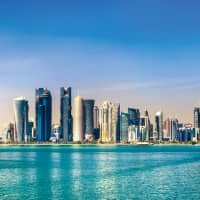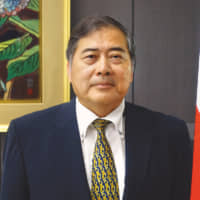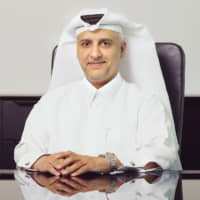This year saw the International Monetary Fund rank Qatar as the world’s richest country based on gross domestic product per capita. According to the World Economic Forum’s Global Competitiveness Report 2017–2018, Qatar ranks as the 25th most competitive economy in the world and the country is continuing to develop its ties to Japan.
In 2008, during the reign of His Highness Sheikh Hamad bin Khalifa Al Thani, the Father Amir, the Qatar National Vision (QNV) 2030 was launched to lead Qatar into the future.
Today, QNV 2030 is driving Qatar’s economic, social, human and environmental development and aims to transform Qatar into an advanced society by 2030.
Qatar and Japan: Collaborations and partnerships
As the world’s top liquefied natural gas (LNG) exporter, Qatar’s wealth is mainly derived from the extraction and export of petroleum.
The world’s largest importer of LNG, Japan was the first country to purchase and import LNG from Qatar. A large percentage of Qatar’s crude oil is exported to Japan today and the two countries remain close trading partners.
Celebrating 40 years in Qatar in 2019, the Mitsui & Co., Middle East Ltd., Doha Office has been actively involved in LNG, refining and integrated watershed planning process projects in Qatar.
“We have established a good relationship with the State of Qatar over the years and wish to continue strengthening our ties by making continuous efforts to encourage social and economic development in a multilateral manner,” said Kunio Wakiwaka, general manager of the Mitsui & Co., Middle East Ltd., Doha Office. “We have signed an agreement with the Ministry of Municipality and Environment to support the country’s efforts toward food security and higher self-sufficiency.”
“There are already some notable Qatari-Japanese projects and investments in the oil and gas industry around the world,” said Seiichi Otsuka, Japanese ambassador to the State of Qatar. “Qatar-Japan partnerships should not only be confined to investments in Qatar. Their combined financial resources and expertise give them lots of potential investment opportunities in third countries. There is much more room for Japan and Qatar to expand relations in different fields. Qatar aims to have a more diversified economy by 2030 and I see a lot of potential for more private sector collaborations in the fields of renewable energy, food production, medicine and education.”
In the financial sector, the collaboration between the Qatar Finance and Business Academy (QFBA) and Mitsubishi UFJ Financial Group (MUFG) is already creating opportunities.
“MUFG has been an active partner for QFBA, offering international internships for young Qataris as part of the Kawader program,” said Katanori Otsuji, managing director of MUFG Bank, Ltd. in Doha. “Over the last few years, Qatari graduates have interned at MUFJ’s London, Singapore, Hong Kong and Malaysia offices.”
Such collaborations will raise the skill and knowledge level of banking sector employees and combine qualifications with job market requirements.
“Qatar is a project finance opportunistic country,” said Otsuji. “The country has grown remarkably over the last decade and we see more opportunities for Japanese companies and investors.”
In 2015, a consortium consisting of Mitsubishi Heavy Industries Ltd., Mitsubishi Corp., Hitachi Ltd. and Thales Canada Inc. received an order to supply the railway system for the Doha Metro Project. In addition, Japanese companies Takenaka Corp. and Taisei Corp. have also been awarded several major airport-related construction contracts.
FIFA World Cup 2022
As Qatar prepares to welcome thousands of visitors for the FIFA World Cup 2022, Hamad International Airport (HIA) is increasing capacity to accommodate over 50 million passengers per year in the run up to the competition.
HIA Chief Operating Officer Badr Mohammed Al Meer said: “In line with our vision and strategic plan, we continue to invest in customer-centric innovative technologies to provide a fast, seamless and enjoyable travel experience. We intend to be the airport of choice for our discerning customers.”
Bringing Qatar and Japan even closer is one of the world’s fastest growing airlines with one of the youngest fleets, Qatar Airways, which began flying to Japan in 2005.
“We are constantly adding to our extensive network through new destinations and also increased frequencies and capacity to our existing cities,” said Akbar Al Baker, CEO of Qatar Airways. “From January 2019, we will be flying the Qsuite-equipped A350-1000 to Tokyo’s Haneda International Airport. The launch of the A350-1000 on these routes is a fulfillment of the promise we made to our passengers to provide them the finest experience available in the skies.”
“Qatar is a unique country that has developed at a steady yet remarkably fast rate,” said Otsuka. “The country is serious about development and is eager to learn from the experiences and know-how of other nations.”






